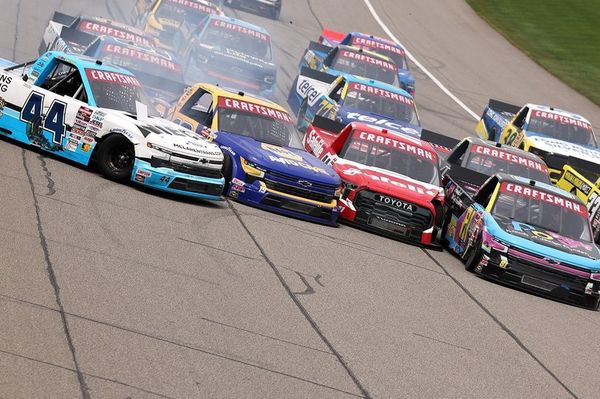My Wines of the Week today are about as far apart geographically (around 5,700 miles), stylistically (a Riesling icewine and a single-vineyard Merlot), and perceptually in the popular imagination as any two that I’ve ever included here. But the beauty of the world of wine is that often, despite these differences, considering two so seemingly divergent bottles side by side leads to unexpected new understandings of each. Which is exactly what happened to me this past week as I tasted these two remarkable wines.
The white Wine of the Week, Inniskillin’s Riesling Icewine 2017, from the Niagara Peninsula, is a bottling that fans of sweet wines need no introduction to. Inniskillin, since its inception more than three and a half decades ago, has built a significant reputation as one of Canada’s finest and most widely available producers. And while they make dry wine as well, it’s their pioneering work in the icewine realm that has been the cornerstone of their success and widespread reputation.
It’s a fascinating style, essentially the result of allowing Riesling (in this case, that is; they also make an excellent icewine from the Vidal grape variety) to remain on the vine well beyond the usual harvest period in the autumn. For the Riesling Icewine 2017, the harvest began on January 5th, at night, in order to make sure that the berries being picked were as cold as possible—the temperature at picking hit -10 degrees Celsius, or approximately 14 degrees Fahrenheit. Those frozen, partially dried berries were then gently pressed, but unlike grapes for more standard dry wine, a significant percentage of the water in each one was left behind as ice, increasing the ratio of sugar in the resulting juice. An 18-day fermentation followed, resulting in a wine that finds that elusive balance between the kind of sweetness that fans of the style look for, but also a vibrant sense of energy because of the wine’s naturally elevated acidity. It’s a wine of richness and vivacity that is perfect during these hot days of summer.
My red Wine of the Week is a beautiful example of the excitement coursing through the world of Israeli wines. Indeed, the Golan Heights Winery Yarden Odem Vineyard Merlot 2014, from Galilee, is a delicious, age-worthy refutation of what too many people still think of when the subject of Israeli wine comes up.
It’s important to remember that wine has been made in this part of the world for thousands of years—Israel and Lebanon (another excellent wine-producing country in the Middle East), after all, are Mediterranean countries, with passionate, visionary producers pushing their countries’ individual wine cultures in exciting, often profound directions.
Still, when I mention Israeli wine in casual conversation to my non-wine-professional friends and acquaintances, the responses too often fall into one of two categories: They say they don’t like Manischewitz (which isn’t made in Israel; it’s cranked out in the United States) or they comment on how they don’t like kosher wine because it’s boiled. As for the latter, they are referring to mevushal wine, which has essentially been flash-pasteurized in order to adhere to certain Orthodox (and sometimes Conservative) wine-serving requirements, the details of which are not relevant here. That process, in my experience, usually changes the flavors and aromas of the wine.
However, most kosher wine produced in Israel isn’t mevushal, and nothing about kosher wine-production law has any adverse impact on the juice in the bottle—the boiling or flash pasteurizing is a separate step that is not undertaken except for those specific mevushal bottlings. Still, that doesn’t mean that a “kosher” notation on the label is free from stigma: A result, I think, of the sort of sweet, confected stuff—Manischewitz and Mogen David, for example—often used for ritual purposes being confused with the very real, very serious wine being produced in this ancient land. Add to that the fact that Israeli wine is often shelved in the “kosher” section of too many wine shops—which is unfortunate, because that is not the defining characteristic of successes like this Merlot (terroir-specificity and brilliant winemaking are)—and the entire category suffers as a result. Ultimately, it undermines the ability of consumers to consider Israeli wine as the result of a specific wine-growing country, with distinct regions and a range of terroirs, and winemakers as dedicated as any in the world. It lumps all of the wines together, and not necessarily in a good way.
But wines like this Merlot are an in situ refutation of all that. It’s sourced from a vineyard that was planted in 1990—nearly three decades ago—at almost 4,000 feet of elevation, meaning that daytime warmth is attenuated by cooler evenings, the importance of which is difficult to overstate. And it’s one of those rare wines that is hard to resist right now, though it promises 10 to 15 years of evolution in the bottle. There are countless wines like this from Israel, with real character, a sense of place, and the potential to age. They just need the chance to shine on their own terms…which, once that cork is popped, they often do.
Inniskillin Riesling Icewine 2017 Niagara Peninsula
Aromatically exuberant, with candied lemon and ginger, white peach, and fennel. Absolutely mouthwatering. The palate is no less generous, with rich nectarine, white peach, pineapple, honey, honeysuckle, hints of lemongrass, fennel bulb, and a balancing hit of acidity against the sweetness. It finishes with a sweep of white licorice and jasmine. Excellent with late-summer stone-fruit desserts, as well as saltier hard cheeses…or simply on its own. SRP: $79.95 for 375ml

Golan Heights Winery Yarden Odem Vineyard Merlot 2014 Galilee
Almost Bordeaux-like on the nose, with generous currants complicated by toasty vanilla, pencil shavings, and cedar aromas. On the palate, cassis, black cherry, and ripe blackberry immediately wash over the tongue, and are quickly joined by generous waves of plum, cigar tobacco, and cafe mocha flavors, all resolving on a haunting floral note through the finish. I love the juxtaposition of the velvety texture and generosity of fruit alongside a structure that is clearly going to allow this excellent wine to age for the next 10 to 15 years. (Note: This wine, while kosher, is not mevushal.) SRP: $109.99








